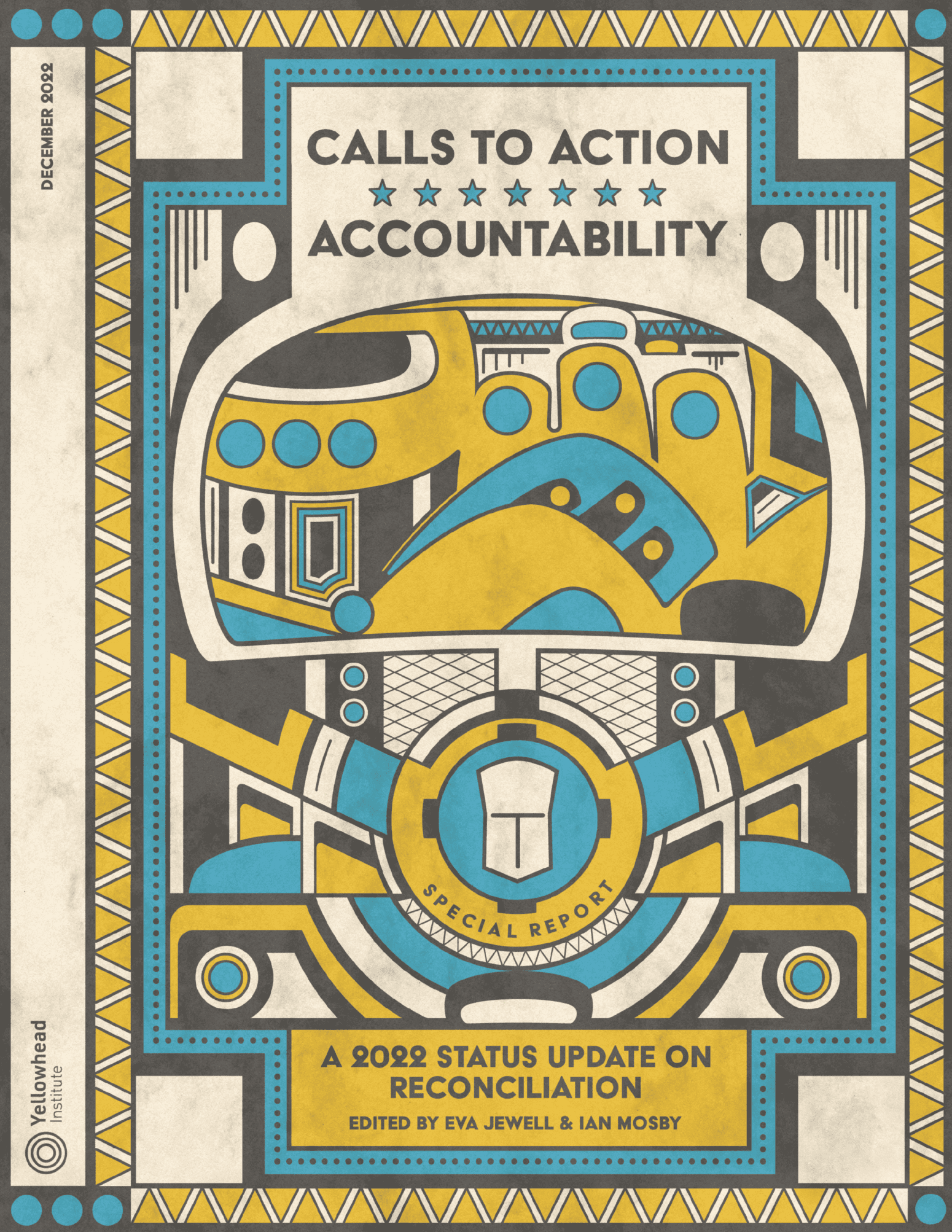- About
- Research
-
-
- Special Reports & Features
- Braiding Accountability: A Ten-Year Review of the TRC’s Healthcare Calls to Action
- Buried Burdens: The True Costs of Liquified Natural Gas (LNG) Ownership
- Pretendians and Publications: The Problem and Solutions to Redface Research
- Pinasunniq: Reflections on a Northern Indigenous Economy
- From Risk to Resilience: Indigenous Alternatives to Climate Risk Assessment in Canada
- Twenty-Five Years of Gladue: Indigenous ‘Over-Incarceration’ & the Failure of the Criminal Justice System on the Grand River
- Calls to Action Accountability: A 2023 Status Update on Reconciliation
- View all reports.
- Special Reports & Features
-
-
- Yellowhead School
-
- The Treaty Map
- LIBRARY
- Submissions
- Donate
December 2022 marks seven years since the Truth and Reconciliation Commission released its six-volume Final Report and 94 Calls to Action.
At the end of a year that saw a flurry of reconciliatory gestures: a papal apology, the second-ever National Day for Truth and Reconciliation, and legislative activity toward a new National Council for Reconciliation, we find that reconciliation in this country is still only just beginning.
This year’s Calls to Action Accountability Special Report is offered in a new format; a more collaborative, edited volume with esteemed Indigenous experts, practitioners, and artists. These area experts have offered important insights to inform our conclusion that in 2022 two new Calls to Action have been completed. These were undertaken by non-governmental cultural institutions and both resulted in the creation of yet more recommendations to address colonial policies in their fields. While the completion of these Calls is welcome news, in the broader landscape of reconciliation, we conclude that a tremendous amount more needs to be done —especially in areas like health, education, child welfare, justice, and Indigenous languages — if Canada hopes to take real responsibility for the genocidal legacy of the residential school system.
KEY QUESTIONS
Seven years after the released TRC’s Calls to Action, what kind of “value” do Canadians see in reconciliation? Every year we note that the progress on Call to Action implementation is slow. It continues to be. How can we explain this?
What does this rate of progress, and which Calls get addressed say about reconciliation in Canada?
Perhaps, though, the ongoing failure of Canada to keep its promises when it comes to the Calls to Action highlights the limits of “reconciliation” as a framework for meaningful and lasting change. And we have to wonder: should we just abandon ‘reconciliation’ altogether?
- Eva jewell & Ian Mosby

